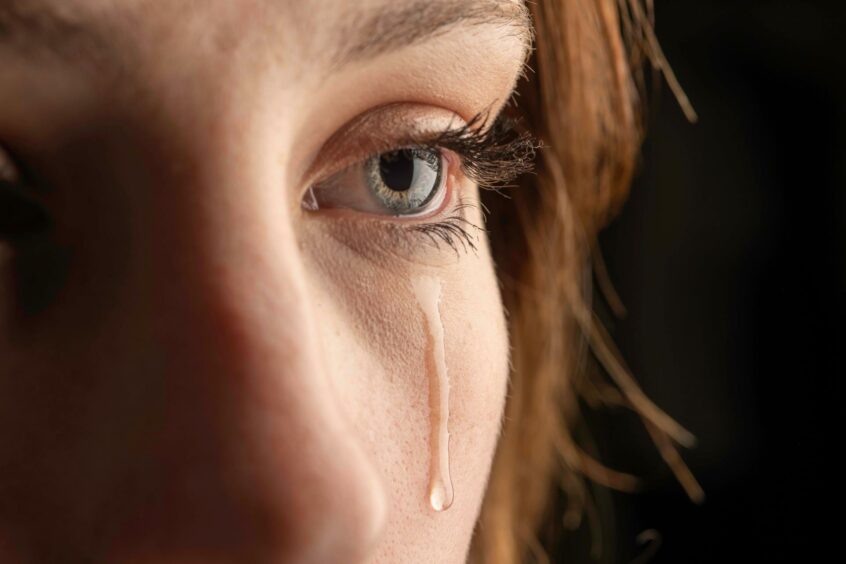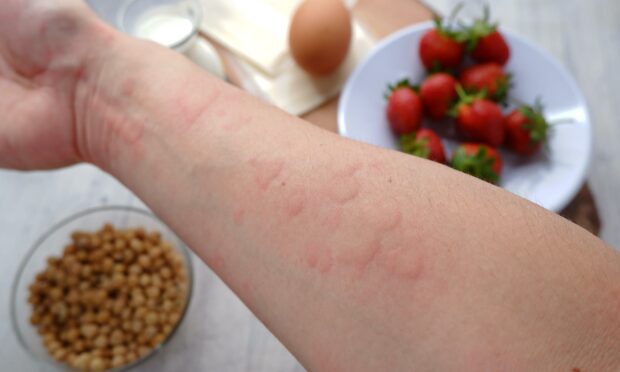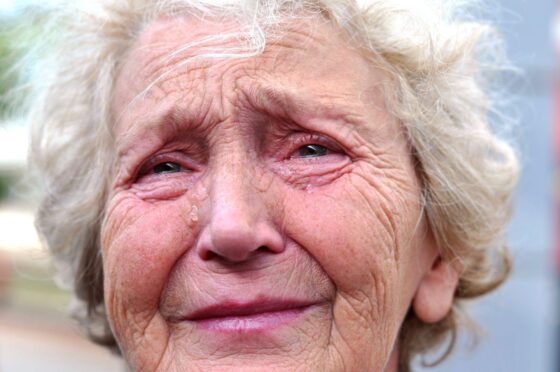If you have an allergy, you’ll know reactions can range from mild to extremely dangerous.
An allergic reaction occurs when the body’s immune system reacts to a particular substance, such as a type of food, as if it’s harmful.
You probably won’t be surprised by some of the most common allergies which, according to the NHS, include:
- grass and tree pollen – otherwise known as hay fever
- dust mites
- animal dander, tiny flakes of skin or hair
- food – particularly nuts, fruit, shellfish, eggs and cows’ milk
- insect bites and stings
- medicines including ibuprofen, aspirin and certain antibiotics
- latex
- mould
- household chemicals
But what are some of the lesser known, unusual allergies some people have to live with?
Water
Aquagenic urticaria is the official name for an allergy to water.
There are only around 100 known case of the condition. It causes people’s skin to turn red and itchy following contact with water.
The rash is made of small, raised bumps surrounded by larger, reddened areas. They usually appear on the neck, upper arms and torso.

The rash usually goes away within an hour. People can also develop a headache, shortness of breath, wheezing, dizziness, and fainting.
Those with the allergy can usually drink water as it doesn’t usually touch the skin. However, many will need treatment to be able to shower or bathe without pain.
Money
People who are allergic to money have a reaction to nickel, which can be found in all UK coins except the 1p and 2p coins.
The allergy can cause a rash on the hands, or any place that comes into contact with the coins.

People who experience this allergy are advised to also avoid skin contact with objects such as some jewellery, hair pins, lighters and even some door handles.
It is also advised to wear gloves when carrying coins, or sticking to using notes or debit cards wherever possible.
Sunlight
Allergies can make life extremely difficult for people, but if you experience polymorphic light eruption, it can make the simple task of going outside a challenging one.
The main symptom of the condition is a rash, appearing two to three days after exposure to sunlight.

It can last for two weeks and usually heals without scarring. The condition affects 10 to 15% of the UK population.
It is thought to be caused by UV light altering a substance in the skin, which the immune system reacts to, resulting in the skin becoming inflamed.
Sweat and tears
Known as cholinergic urticaria, some people are allergic to their own bodily fluids which can make natural reactions such as sweating and crying more complicated.
It’s not known what causes the allergic reaction, but it is thought to be linked to rising body temperature, or the nervous system.

The allergy can result in:
- Hives
- Swelling, often around the face and lips. If swelling causes your throat or tongue to block your airway, this can be life-threatening.
- Bronchospasm, where your airways go into spasm and contract abnormally, making it difficult to breathe.
- Low blood pressure.
It can be life threatening if left untreated.
Smell of fish
For those who have a food allergy, it is unlikely to be triggered by smell.
However, if you are severely allergic to fish, you may want to avoid areas where fish protein is in the air, as it can enter your respiratory system and cause an allergic reaction.
This is extremely rare, however in 2019, 11-year-old Camron Jean-Pierre from the US, who had a fish allergy and asthma, died after his family cooked fish in the house.

Food allergies are caused by proteins in the food. You can’t have an allergic reaction to the smell if the food’s odour is produced by something other than these proteins.
It is thought you can’t get an allergic reaction to the smell of nuts as the smell does not contain these proteins.
However, the smell of fish does, making it more likely those who are allergic will suffer a reaction to it.
- Do you have an unusual allergy? We’d love to hear your story. Contact us at healthandwellbeing@thecourier.co.uk










